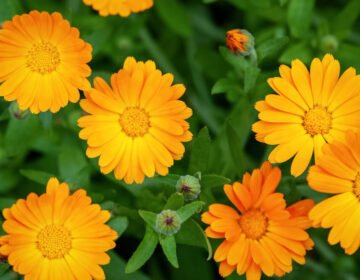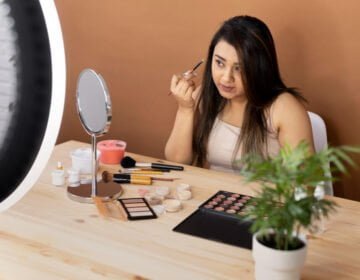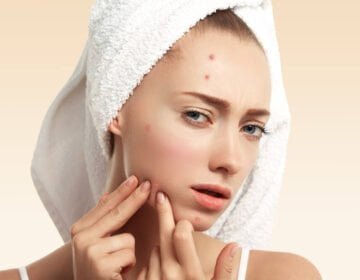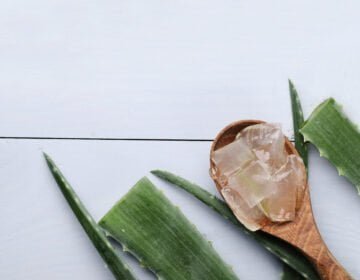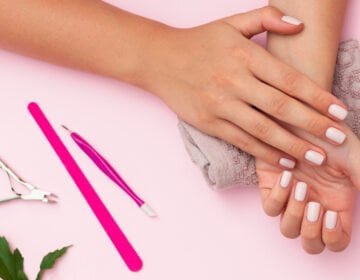
Natural Remedies for Treating Acne
People of all ages can get acne which is a common skin disease. Acne can be frustrating, so we often look for ways to get rid of it that offer clear skin. There are many acne treatments on the market, but natural solutions are a gentle and possibly effective way to treat acne. In this blog post, we’ll look at natural ways to treat acne, with a focus on things you can do yourself to get clear, healthy skin.
Join us as lets dive into the world of natural remedies for treating acne and discover the power of DIY solutions for clear and healthy skin. From simple ingredients to customizable recipes, we will guide you on a journey towards a more natural approach to skincare. Say goodbye to harsh chemicals and bring out the beauty of natural remedies for acne.
Understanding Acne and Its Causes
Acne is a common skin condition that affects millions of people. It occurs when hair follicles become clogged with dead skin cells and bacteria leading to the formation of pimples, blackheads, or whiteheads. To effectively address acne, it is essential to understand its causes and underlying factors. Here, we will delve into the key aspects of acne and shed light on its contributing factors:
Clogged Pores:
When excess sebum combines with dead skin cells, it can clog the hair follicles or pores. This creates an ideal environment for the proliferation of bacteria and the formation of acne.
Bacterial Overgrowth:
Propionibacterium acnes (P. acnes) is a type of bacteria that naturally resides on our skin. However, in individuals with acne, there is an overgrowth of P. acnes within the clogged pores, triggering an inflammatory response and further aggravating acne symptoms.
Hormonal Factors:
Hormonal fluctuations, particularly during puberty, menstruation, pregnancy, and menopause, can contribute to the development of acne. Hormones such as androgens can increase sebum production and influence the skin’s sensitivity to acne causing bacteria.
Environmental Factors:
Certain environmental factors, such as high humidity or exposure to pollutants and irritants, can worsen acne symptoms or trigger breakouts in susceptible individuals.
Benefits of Natural Remedies for Acne
Natural remedies provide a gentle and holistic approach that can be beneficial for various skin types and individuals. Here are some key advantages of incorporating natural remedies into your acne treatment routine:
Gentler on the Skin
Natural remedies typically consist of ingredients derived from plants, fruits, and other natural sources. These ingredients tend to be milder and less irritating compared to harsh chemicals found in some commercial acne products. As a result, natural remedies can be gentler on the skin, minimizing the risk of dryness, redness, and irritation.
Reduced Risk of Side Effects
Commercial acne products often contain ingredients such as benzoyl peroxide or salicylic acid, which can cause side effects like dryness, peeling, or increased sensitivity. Natural remedies, on the other hand, are less likely to cause such adverse reactions, making them a safer choice for those with sensitive or reactive skin.
Nourishing and Healing Properties
Many natural ingredients used in acne remedies have inherent nourishing and healing properties. For instance, ingredients like aloe vera, tea tree oil, and honey have antibacterial and anti-inflammatory properties that can help reduce acne-causing bacteria and soothe inflammation. These natural remedies can aid in the healing process and promote healthier-looking skin.
Cost-Effective
Natural remedies for acne often utilize ingredients that are readily available and affordable. Instead of investing in expensive commercial products, you can create effective remedies using items found in your kitchen or local stores. This cost-effective approach makes natural remedies accessible to a wider range of individuals.
While natural remedies can be effective for many individuals, it’s important to note that results may vary. It’s advisable to consult with a dermatologist or skincare professional, especially if you have severe or persistent acne. They can provide personalized guidance and recommendations based on your specific skin condition.
DIY Natural Remedies for Treating Acne
When it comes to treating acne, DIY natural remedies offer a wide range of options that can be effective in promoting clearer and healthier skin. These remedies utilize readily available ingredients and are easy to prepare at home. Here are some DIY natural remedies you can try:
Honey and Cinnamon Mask:
- Mix equal parts of raw honey and cinnamon powder to form a paste.
- Apply the mask to clean, dry skin and leave it on for 10-15 minutes.
- Rinse off with lukewarm water and pat dry.
Honey has antibacterial properties, while cinnamon helps reduce inflammation and soothe the skin.
Tea Tree Oil Spot Treatment:
- Dilute a few drops of tea tree oil with a carrier oil, such as jojoba oil or coconut oil.
- Apply a small amount of the diluted mixture to individual acne spots using a cotton swab.
- Leave it on overnight and rinse off in the morning.
Tea tree oil has antimicrobial properties that can help reduce acne-causing bacteria.
Turmeric Face Mask:
- Mix 1 teaspoon of turmeric powder with 1 tablespoon of plain yogurt.
- Apply the mask evenly to clean skin and leave it on for 15-20 minutes.
- Rinse off with warm water and gently pat dry.
Turmeric has anti-inflammatory properties that can help calm acne-related redness and swelling.
Aloe Vera Gel:
- Extract fresh gel from an aloe vera leaf or use store-bought aloe vera gel.
- Apply the gel to clean skin and leave it on for 20-30 minutes.
- Rinse off with water and gently pat dry.
Aloe vera has soothing and anti-inflammatory properties that can help reduce acne inflammation and promote healing.
Oatmeal and Yogurt Scrub:
- Mix 1 tablespoon of ground oatmeal with 1 tablespoon of plain yogurt.
- Gently massage the mixture onto damp skin in circular motions for a few minutes.
- Rinse off with water and pat dry.
This gentle scrub helps exfoliate dead skin cells and unclog pores.
These DIY natural remedies can provide a more gentle and holistic approach to acne treatment. However, if you have severe or persistent acne, it’s important to consult with a dermatologist for personalized advice and treatment options.
Tips for Using DIY Remedies Safely and Effectively
While DIY natural remedies for acne can be beneficial, it’s important to use them safely and effectively to achieve the best results. Here are some tips to keep in mind when incorporating these remedies into your skincare routine:
Patch Test
Before applying any new ingredient or remedy to your face, perform a patch test on a small area of your skin, such as your inner forearm. This helps determine if you have any allergies or sensitivities to the ingredients. If you experience any adverse reactions like redness, itching, or irritation, avoid using that particular remedy.
Be Consistent
Consistency is key when using DIY remedies. Incorporate them into your skincare routine regularly to see the best results. However, avoid overusing or excessively applying remedies, as this can lead to skin dryness or irritation.
Follow Instructions
Pay attention to the instructions and recommended application times for each remedy. Leaving a mask or treatment on for too long may cause skin irritation while leaving it on for too short a time may not provide optimal results.
Patience is Key
Results may take time when using natural remedies. Be patient and give your skin sufficient time to respond to the treatment. It’s important to understand that everyone’s skin is unique, and what works for one person may not work the same way for another.
Consult a Dermatologist
If you have severe or persistent acne that does not respond to DIY remedies, it’s recommended to consult a dermatologist. They can provide professional guidance, assess your specific skin condition, and suggest personalized treatment options.
By following these tips, you can safely and effectively incorporate DIY remedies into your skincare routine and improve your acne-prone skin. Remember that natural remedies may not work for everyone, and individual results may vary.
Other Lifestyle Factors for Clear Skin
In addition to using DIY remedies for acne, there are several lifestyle factors that can contribute to clearer and healthier skin. By incorporating these practices into your daily routine, you can further enhance the effectiveness of your acne treatment. Here are some key lifestyle factors to consider:
Cleanse Your Face Properly
Ensure you cleanse your face twice a day using a gentle cleanser suitable for your skin type. Avoid harsh scrubbing or using abrasive products that can irritate the skin and worsen acne. Pat your skin dry with a clean towel instead of rubbing it vigorously.
Maintain a Healthy Diet
A balanced diet rich in fruits, vegetables, whole grains, and lean proteins can contribute to overall skin health. Limit your consumption of processed foods, sugary snacks, and beverages as they may exacerbate acne. Stay hydrated by drinking an adequate amount of water daily.
Avoid Touching Your Face
Resist the urge to touch your face throughout the day, as it can transfer dirt, bacteria, and oils to your skin, potentially leading to clogged pores and breakouts. Be mindful of resting your chin or cheeks on your hands.
Protect Your Skin from the Sun
Protect your skin from harmful UV rays by wearing a broad-spectrum sunscreen with at least SPF 30. Sun exposure can trigger inflammation and worsen acne. Choose non-comedogenic and oil-free sunscreen formulations to avoid clogging pores.
Change Your Pillowcases Regularly
Pillowcases can harbour dirt, oils, and bacteria, which can transfer to your skin while you sleep. Change your pillowcases regularly to maintain a clean sleeping environment for your face.
Seek Professional Help
If your acne persists or worsens despite your efforts, it’s essential to consult a dermatologist. They can evaluate your specific condition, provide appropriate medical treatments, and offer personalized advice for managing acne.
By incorporating these lifestyle factors into your daily routine, you can support your acne treatment and maintain clearer, healthier skin. Remember that achieving and maintaining clear skin is a gradual process, and consistency is key.
Conclusion
Achieving and maintaining clear skin is a journey that involves understanding acne, incorporating effective remedies, and adopting healthy lifestyle practices. In this blog, we explored the world of DIY natural remedies for treating acne, providing you with valuable insights and practical solutions.
We hope this blog has provided you with valuable insights and practical solutions for managing acne naturally. Embrace the journey of discovering what works best for your skin and continue to prioritize self-care and skin health.


